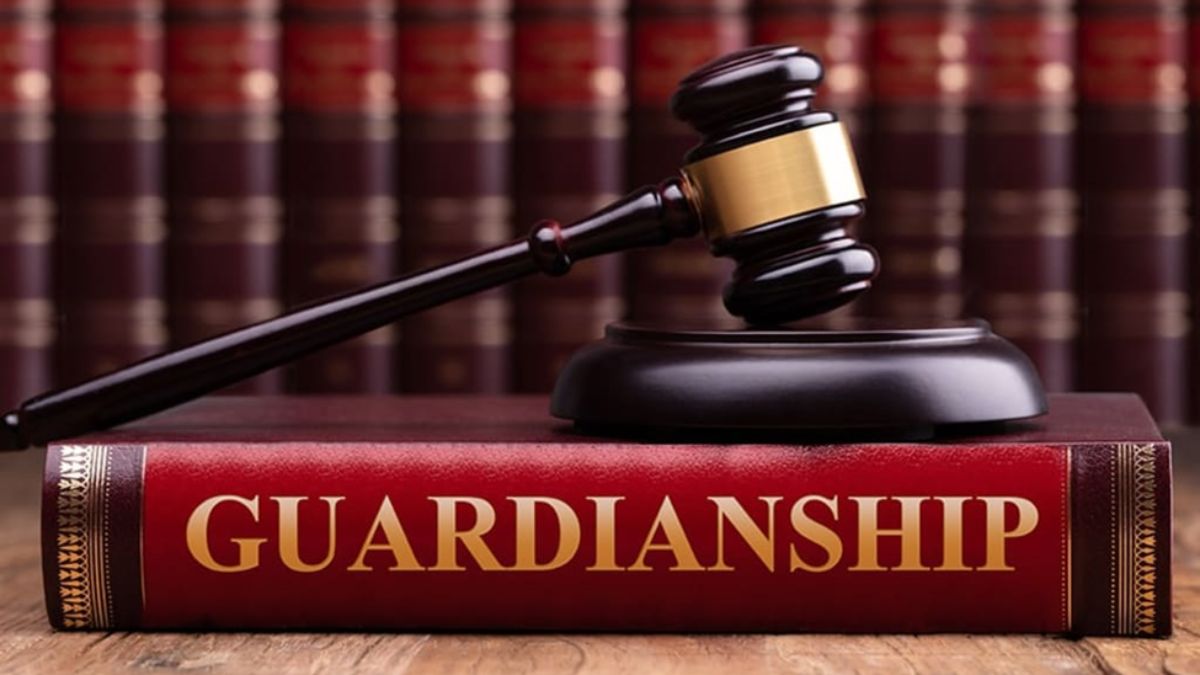LAW
How to Legally Terminate a Guardianship in Colorado

Guardianship is a legal relationship established by a court that grants a person (the guardian) the authority to care for another individual (the ward), typically because the ward is a minor, elderly, or incapacitated. While guardianships are meant to protect those who cannot care for themselves, circumstances sometimes change, and the guardianship may no longer be necessary. In Colorado, terminating a guardianship involves a legal process that ensures the well-being of the ward and protects their rights. This article will explain the steps involved in legally terminating a guardianship in Colorado, including the legal grounds, the required procedures, and key considerations for those involved.
Understanding Guardianship in Colorado
Before delving into the termination process, it is important to understand the nature of guardianship in Colorado. There are two main types of guardianships:
- Guardianship of a Minor: When a child’s parents are unable or unwilling to care for them, a court may appoint a guardian to take over parental responsibilities.
- Guardianship of an Adult: This applies when an adult is deemed incapacitated and unable to manage their personal or financial affairs due to conditions such as dementia, developmental disabilities, or mental illness.
In both cases, the guardian has legal authority to make decisions regarding the ward’s personal well-being, including decisions related to healthcare, education, and housing. However, guardianship is not necessarily permanent. If the conditions that necessitated the guardianship change, it is possible to terminate the guardianship through legal means.
Legal Grounds for Terminating a Guardianship
Colorado law outlines specific conditions under which a guardianship can be terminated. The court will only end a guardianship if it determines that doing so is in the best interests of the ward. Some common grounds for termination include:
- Restoration of Capacity: In cases of adult guardianship, if the ward has recovered or regained the ability to care for themselves, they (or another party) may petition the court to terminate the guardianship. Medical evidence, such as statements from healthcare providers or mental health professionals, may be required to demonstrate that the ward is capable of making independent decisions.
- Minor Reaching Adulthood: For guardianships involving minors, the most common reason for termination is that the child has reached the age of 18. In Colorado, guardianship of a minor automatically ends when the child becomes a legal adult, unless otherwise ordered by the court.
- Death of the Ward: If the ward passes away, the guardianship will naturally terminate. However, the guardian may need to inform the court and provide proof of death to formally close the guardianship case.
- Parent Regaining Custody: In situations where a guardian was appointed because the child’s parents were unfit or unable to care for the child, the guardianship may be terminated if the parents regain custody. This can occur if the parents demonstrate to the court that they are now able to provide a stable and supportive environment for the child.
- Resignation or Death of the Guardian: If the guardian is no longer able to fulfill their responsibilities due to personal circumstances or death, they may resign, or the court may appoint a successor guardian. In some cases, a new guardian may not be necessary, and the guardianship may be terminated entirely if the ward no longer requires such protection.
The Legal Process for Terminating a Guardianship
The process for terminating a guardianship in Colorado requires filing a petition with the court and following legal procedures to ensure the ward’s rights and interests are protected. Below are the key steps involved:
1. Filing a Petition for Termination
The first step in terminating a guardianship is to file a petition with the court. This petition must be filed in the same court that initially granted the guardianship. The petitioner can be the ward, the guardian, a family member, or another interested party. The petition should include the following:
- The reason for requesting the termination of the guardianship.
- Information about the ward’s current condition (for adult guardianships, this may include medical reports or other evidence showing that the ward has regained capacity).
- Any supporting documentation that demonstrates that the termination is in the best interests of the ward.
If the guardian wishes to resign, they must also file a resignation with the court and explain why they can no longer serve as guardian.
2. Notice to Interested Parties
Once the petition is filed, the court will require that notice of the petition be given to all interested parties. Interested parties typically include the ward (if they did not file the petition), family members, and other individuals involved in the ward’s care, such as healthcare providers or caseworkers.
In some cases, the court may appoint a guardian ad litem (a legal representative) to investigate and ensure that the ward’s interests are protected during the termination process.
3. Court Hearing
After the petition is filed and notice is given, the court will schedule a hearing to review the case. During the hearing, the petitioner must present evidence to support their claim that the guardianship is no longer necessary. The court will review the evidence and may ask for testimony from the petitioner, the guardian, the ward, and other interested parties.
For adult guardianships, medical evidence showing the ward’s regained capacity will play a significant role in the court’s decision. For minors, the court may examine the child’s relationship with their parents and determine whether returning to parental custody is in the child’s best interests.
4. Court Decision
After considering the evidence presented at the hearing, the court will issue a decision. If the court determines that the guardianship is no longer necessary, it will issue an order terminating the guardianship. If the court denies the petition, the guardianship will remain in place.
If the guardianship is terminated, the former guardian must submit a final report to the court detailing any remaining responsibilities or assets they managed on behalf of the ward. The court will review this report and formally discharge the guardian from their duties.
Key Considerations for Guardians and Wards
Terminating a guardianship can be a complex legal process, and it is important to approach it with care. Here are some key considerations for guardians, wards, and their families:
- Consult an Attorney: Guardianship termination involves navigating legal requirements and presenting evidence to the court. Consulting with an experienced Colorado guardianship attorney can help ensure that the process goes smoothly and that the ward’s interests are protected.
- Prepare Evidence: Whether you are petitioning to terminate an adult guardianship based on the ward’s regained capacity or seeking to transfer custody of a minor back to their parents, you will need strong evidence to support your case. Medical records, psychological evaluations, and testimony from professionals involved in the ward’s care can all be critical.
- Plan for the Ward’s Future: If the guardianship is terminated, it is important to have a plan in place for the ward’s care moving forward. Whether this involves transitioning care back to the ward themselves, to parents, or to another responsible party, the court will want to ensure that the ward’s needs are met after the termination.
Conclusion
Legally terminating a guardianship in Colorado is a process that ensures the ward’s best interests are protected at all times. Whether the ward has regained capacity, the minor has reached adulthood, or another change in circumstances has occurred, it is essential to follow the legal steps and present strong evidence to the court. By understanding the grounds for termination and preparing adequately, individuals involved in a guardianship can navigate the process smoothly and ensure a fair outcome.
LAW
Drive Social Media Lawsuit: Allegations & Industry Impact

Clients have accused Drive Social Media of making exaggerated claims regarding potential returns on investment. Allegations suggest that the agency misrepresented the effectiveness of its strategies, leading clients to invest substantial sums based on inflated promises. For instance, a retail e-commerce brand reportedly invested over $500,000 but experienced results that fell significantly short of expectations.
Unethical Billing Practices
The lawsuit also highlights concerns about billing practices. Clients claim they were charged for services not rendered or faced hidden fees not disclosed upfront. Such practices have led to disputes over payments and a loss of trust in the agency’s financial dealings.
Data Misrepresentation
Another serious accusation involves the manipulation of performance data. Clients allege that Drive Social Media provided skewed analytics, inflating metrics like engagement, traffic, and conversions. This alleged data falsification misled clients about the success of their campaigns.
Labor Law Violations
Former employees have come forward with allegations of labor law violations, including unpaid wages, lack of overtime pay, and insufficient breaks. Additionally, claims of workplace discrimination based on race and gender have surfaced, further complicating the agency’s legal challenges.
Legal Proceedings and Current Status
The lawsuit has progressed through various legal stages, with both parties presenting evidence and arguments. As of now, the case remains ongoing, with no final verdict reached. The proceedings have drawn attention from industry observers, eager to see how the legal system addresses these serious allegations.Lawexpertise
Industry Implications
The Drive Social Media lawsuit serves as a cautionary tale for businesses engaging digital marketing agencies. It underscores the importance of due diligence, transparent contracts, and clear communication. Businesses are advised to scrutinize service agreements, demand regular performance reports, and be wary of agencies offering guarantees that seem too good to be true.
Conclusion
The Drive Social Media lawsuit has illuminated potential pitfalls in the digital marketing industry, emphasizing the need for ethical practices, transparency, and accountability. As the legal proceedings continue, businesses and marketing professionals alike should reflect on the lessons learned to foster a more trustworthy and effective marketing environment.
FAQs
What is the Drive Social Media lawsuit about?
The lawsuit involves allegations against Drive Social Media for misleading marketing practices, unethical billing, data misrepresentation, and labor law violations.
How has the lawsuit impacted the digital marketing industry?
The case has heightened awareness about the importance of transparency and ethical conduct in digital marketing, prompting businesses to be more cautious when selecting agencies.
What can businesses learn from this lawsuit?
Businesses should ensure clear and transparent agreements with marketing agencies, demand regular and verifiable performance reports, and be cautious of agencies offering unrealistic guarantees.
Is the lawsuit still ongoing?
Yes, as of now, the lawsuit is ongoing, with both parties presenting their arguments and awaiting a final verdict.
Where can I find more information about the lawsuit?
For detailed information, you can refer to legal analyses and news articles available on reputable law and business websites.
LAW
Patel Bakersfield City Council Threats: Legal Community Impact

Introduction
In April 2024, Riddhi Patel, a 28-year-old Bakersfield resident, made headlines after allegedly threatening members of the Bakersfield City Council during a public meeting. This incident has sparked widespread discussions about public discourse, legal accountability, and community safety. This article delves into the details of the event, the subsequent legal proceedings, and the broader implications for the Bakersfield community.
The Incident
On April 10, 2024, during a Bakersfield City Council meeting, Riddhi Patel was escorted out after making verbal threats against council members. These threats were reportedly related to a resolution concerning a Gaza ceasefire. Patel’s actions drew immediate attention and raised concerns about the safety of public officials and the conduct of public meetings.
Legal Proceedings
Following the incident, Patel faced multiple felony charges. She was accused of making death threats toward the Bakersfield City Council, leading to her appearance in court for hearings. The legal proceedings have been closely followed, highlighting the serious consequences of threatening public officials.
Community Impact
The threats against the Bakersfield City Council have had a profound impact on the local community. Residents have expressed concerns about the safety of public officials and the potential chilling effect on public discourse. The incident has sparked discussions about the balance between free speech and the need to protect individuals from threats and harassment.
Comparative Analysis: Legal Consequences for Threatening Public Officials
To provide a broader perspective, here is a comparison of legal consequences for individuals who threaten public officials in various jurisdictions:
| Jurisdiction | Legal Consequences | Notable Cases |
|---|---|---|
| United States | Federal and state laws impose severe penalties, including imprisonment and fines. | Riddhi Patel’s case in Bakersfield, California. |
| United Kingdom | Offenses under the Malicious Communications Act can lead to imprisonment. | Case of a man jailed for sending threatening letters to MPs. |
| Canada | Criminal Code provisions allow for prosecution with potential imprisonment. | Individual convicted for threatening a Member of Parliament. |
| Australia | Laws against threatening communications can result in significant penalties. | Person sentenced for sending threatening emails to a senator. |
| Germany | Threatening public officials is a criminal offense with potential jail time. | Case of a man convicted for threatening a local mayor. |
Conclusion
The case of Patel Bakersfield City Council Threats against the Bakersfield City Council underscores the critical importance of maintaining respectful and lawful communication within democratic societies. It highlights the need for legal frameworks that protect public officials from threats while safeguarding the fundamental right to free speech. As the legal proceedings continue, the community remains vigilant, reflecting on the balance between individual rights and public safety.
LAW
Nashville Law Firm Demands Transparency in Chris Young Arrest, Advocates for Fair Treatment of All Citizens

Nashville, TN — Recently, country showbiz star Chris Young was arrested which caused a stir in the society and due to that, Nashville TN Law has issued an appeal for more fairness and transparency in celebrity arrest cases. In the wake of the release of the security footage that cast doubt on the behavior of the law enforcement officers during the arrest then the firminstead is stressing on the best practices and independence of person rights during such arrest.
Security Footage Raises Concerns
The event that took place at the convenience store and recorded on a security camera raised public awareness of how police officers responded to the case. The leaked video has brought a lot of concern and debate on how Chris Young was arrested, where he seemed to have been apprehended in a rather aggressive way that may have been unlawful to the rights of the artist.
While the transparency rises, Nashville TN Law should seek to understand if the police use different treatment methods after big-name arrests such as Chris Young.Truck accident lawyer Nashville According to David Raybin from Nashville TN Law, ‘’Such tapes can give important information concerning the events that led to the arrest’. This footage is helpful in making sure that the police force is always on the line for their conduct.” Primally, all people who are offenders should be treated equally regardless of their public visibility and they should enjoy equal rights under the constitution and the law.
Commitment to Legal Advocacy
Nashville TN Law has been practising personal legal services in both criminal defense and civil litigations, such as car accidents, and wrongful arrest. Some of the skills that Center for is selected from are the firm’s experience in personal injury law which has enabled its clientele to appreciate the necessity of shield when dealing with either police or other entities.
Aside from personal injury, Nashville TN Law practices law involving medical malpractice, wrongful death and civil rights violations. With experience on their side, the firm can help victims pursue justice after suffering a civil rights violation — whether in connection with an arrest, during incarceration or any other situation that involves excessive force/focus.
Said “Everybody, famous or not, deserves a fair trial.” “We must allow our legal system the opportunity to right a wrong if security footage can show someone’s rights were violated. This case shows the important need of law enforcement and agencies to be transparent, to act within the scope of the law and for communities.
Advocating for Systemic Change
The firm’s advocacy extends beyond individual cases; car accident lawyer nashville is dedicated to pushing for systemic change in how arrests and interactions with law enforcement are handled, particularly in Tennessee. In the wake of incidents like the Chris Young arrest, Nashville TN Law calls for clearer guidelines and increased oversight to ensure that high-profile individuals and everyday citizens alike receive fair treatment.
“Police departments must continually assess their procedures and practices to ensure they are not only effective but also just,” David Raybin continued. “We are committed to supporting reforms that make our legal system fairer for everyone, regardless of their status or background.”
About Nashville TN Law
Nashville TN Law is a highly rated legal firm based in Nashville Tennessee with a focus on accident injury, cases involving death, civil rights abuses and defense law. Our team of Nashville TN Law attorneys has years of experience and is guaranteed to ensure the rights of the citizens who have been harm by others, including policemen, are observed. In its services, the firm provides all form of legal services with an aim of making sure that the clients get the justice they require.

 Cartoon1 year ago
Cartoon1 year agoUnlocking the Potential of Nekopoi.care: A Comprehensive Guide

 Game1 year ago
Game1 year agoExploring Aopickleballthietke.com: Your Ultimate Pickleball Destination

 BUSINESS1 year ago
BUSINESS1 year agoWhat Companies Are In The Consumer Services Field

 BUSINESS12 months ago
BUSINESS12 months agoUnraveling the Mystery of 405 Howard Street San Francisco charge on Credit Card

 HOME IMPROVEMENT1 year ago
HOME IMPROVEMENT1 year agoVtrahe vs. Other Platforms: Which One Reigns Supreme?

 TECHNOLOGY12 months ago
TECHNOLOGY12 months agoThe Guide to Using Anon Vault for Secure Data Storage

 ENTERTAINMENT8 months ago
ENTERTAINMENT8 months agoUnderstanding Bunkr Album: A Comprehensive Guide

 ENTERTAINMENT1 year ago
ENTERTAINMENT1 year agoThe Epic Return: Revenge of the Iron-Blooded Sword Hound
















